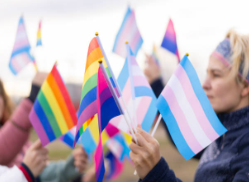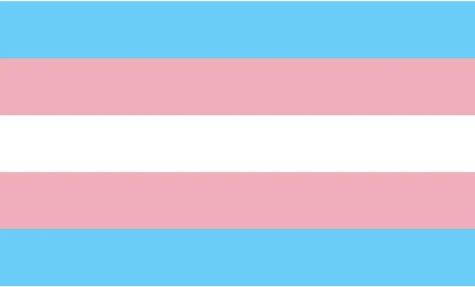Trans Rights and the Discriminating Laws Against it

Photo from Unsplash
June 12, 2023
The trans community is one large in size and consists of people with many different backgrounds and ages, yet the majority are from younger generations. Being transgender can mean many different things, but the main distinction is that someone does not identify as the gender they were assigned at birth, and so they identify as what they feel is a better representation of them..
Anti-transgender legislation has been seen in 33 states nationwide, with more than 100 bills aimed right towards the civil rights of the transgender community. One of the more notable bills is Arkansas House Bill 1570, which passed 2 years ago on April 6, 2021. This bill was the first in the country to outright ban sex change operations for minors, restricting trans youth from expressing themself freely.
Data from the HRC (Human Rights Campaign), one of the most prominent LGBTQIA+ advocacy groups in the nation, shows that “at least 117 more bills have been introduced in the legislatures to target and aim straight at the trans community.” This is the highest number the HRC has recorded in their 15 years of tracking these anti LGBTQ+ and Transgender bills.

The impact these bills will, and have already had, on the transgender community is enormous. High suicide rates is a big one of note, especially among transgender youth. Suicide rates among trans youth went up by 50% in just one year. More than 34,000 children ages 13-24 have considered attempting suicide. California is a state that is often considered very a welcoming state to transgender people, yet the rate of attempted suicide among trans youthis 14%. The state with the highest percentages of trans or non-binary youth that have considered suicide in the US is Texas, with a 56%, New York with 54%, and Ohio with 55%. Nationwide, around 18% of transgender people have attempted suicide. Levels of depression and anxiety have also risen even in both blue states and red states. At schools, where it’s supposed to be the “safest” place a kid goes, they are being discriminated against and bullied for being who they are.
Bans prevent trans athletes from competing as gender other than the one they were assigned at birth, which is another huge topic amongst the trans community. People of all genders play sports, but often these sports are divided between men and women.
What happens if you are a male to female trans woman? If you wanted to play any sport in a women’s division, you wouldn’t be allowed to in Arkansas, Mississippi, and Tennessee. These three states have already signed bills prohibiting transgender people from competing in a different division than the one that assigns with the gender they were given at birth.
These topics are hard to take for the trans community, as well as for many civil rights movements. It’s clearly a violation to anyone to have their rights ripped from them like this. For people in the trans community as well as other minority communities, violation of their rights is nothing new—used to having to overcome many barriers, and receive little in return. As “the people” we need to stand together and help communities in need like this.


